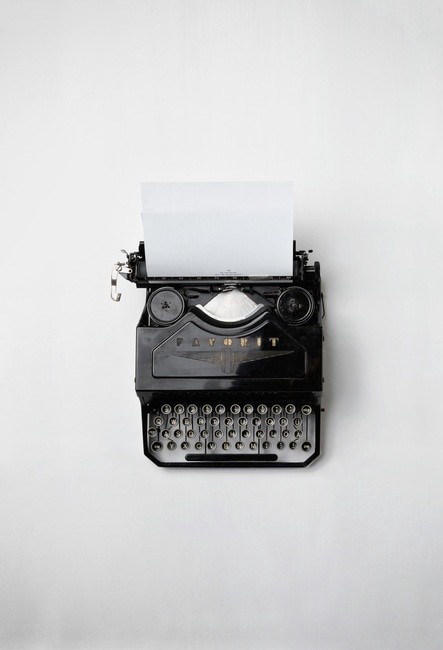THE COMMA GOES INSIDE THE QUOTATION MARKS.
Friends, I used to be really bad at punctuation. Sometimes I look back at old work and want to chuck my coffee mug at the screen. “How could you have been so dumb, you assclown?” I ask myself. But I was a complete novice then; I couldn’t recall much from my public school English courses. It wasn’t until I became a copywriter and copy editor that I truly learned what the hell a semicolon is. (Granted, it is kind of the Shia LaBeouf of punctuation: confusing yet intriguing.)
Sometimes I see that writers on Medium make common punctuation mistakes. These mistake are easy to make, and they don’t define you as a writer. However, it’s time to fix that shit.
NOW.
Below is a quick guide to common punctuation mistakes.
(Please note, GRAMMAR NAZIS: I’ve selected punctuation rules based on the most common writing style guides of America. I’m sure you can dispute one or two of these here — SAVE IT FOR LATER.)
(And if I have a typo or mistake in here, thank you for pointing it out. I’M NOT PERFECT.)
- FOR THE LOVE OF GOD, please put that comma INSIDE the quotation marks.
E.g.,“Justin Trudeau might be the sexiest mother f’er there ever was,” she said to no one in particular.
E.g., I told her that I was really into dating what is colloquially known as “juggalos,” a.k.a. fans of the band Insane Clown Posse. - Also, put that friggin’ period inside quotation marks.
E.g., I’m pretty sure she just called herself “white girl basic.” - For question marks, you can put them in or outside quotation marks, depending on whether or not they’re in the quote. Same goes for exclamation points.
E.g., Did that asshole just say “I like Trump”?
E.g., And then she asked, “Did that asshole just say he likes Trump?” - To make things more confusing, make sure you put semicolons and colons OUTSIDE of quotation marks, unless they’re part of the quote:
E.g., I’d describe that cheese as “orgasmic”; however, I’d describe that other cheese as kind of “road kill-esque.” - If you’re speaking about your one and only daughter, Feather, or your one and only prized Yorkie, Sparklepants, make sure to put commas around that shit.
E.g., My daughter, Feather, and my Yorkie, Sparklepants, both drool a lot. - But if you’re talking about your friend Harley and he’s not your only friend, then you DON’T need to use commas.
E.g., My friend Harley looks like Dorothy from Golden Girls and Ron Swanson f*cked and had a baby. - You can do punctuation in parentheses like this:
E.g., I had a dream that I rode Jeff Goldblum bareback (and he seemed to really dig it).
Or:
E.g., I had a dream that I rode Jeff Goldblum bareback. (I’m pretty sure it was the best dream I ever had.) - If you have two independent clauses, semicolon or period or conjunction-ize (that’s not a real term) it up. NO COMMAS.
E.g., I have no idea what you’re talking about; you sound like a 5-year-old child who ate edibles.
E.g., I have no idea what you’re talking about. You sound like a 5-year-old child who ate shrooms.
E.g., I have no idea what you’re talking about, and you sound like a 5-year-old child who ate too many Ambien. - You should hyphenate compound modifiers.
E.g., I ran a 13.1-mile race yesterday, and I’ve lost all sensation in my butt. - But don’t use a hyphen if the adverb ends in -ly.
E.g., I feel like comically deranged clown today. - While we’re at it, let’s throw in some spelling: its vs. it’s.
E.g., It’s my birthday and I’ll get drunk and cry and dial my ex if I want to.
E.g., Its name is George, and I’m not sure if it’s a mountain lion or a house cat on steroids. - If two people possess something together, the apostrophe goes on the second name.
E.g., Hillary and Bernie’s race was much more respectful than whatever this shit show is. - SWEET MOTHER OF JESUS, you are not the Aniston’s or the Jolie’s or the Pitt’s or the Theroux’s. The next time you write a Christmas card from “The Aniston’s,” slap that pen right out of your own friggin’ hand. YOU ARE JUST “THE ANISTONS.”
- Put commas around years and dates when used like the examples below.
E.g., It was August 12th, 1978, when I lost my virginity to Burt Reynolds. At least I think it was Burt Reynolds.
E.g., I lost my virginity to a Burt Reynolds impersonator in a resort in Miami Beach, Florida, and it was the best 30 seconds of my life. - When you’re directly addressing someone, use a comma. People are dropping this off more and more — don’t be that person. You don’t have to use a comma with “Dear” though.
E.g., Spartacus, please hand me my vibrator. You’re doing an awful job right now.
Originally appeared on my Medium page.



4 Comments
Great list! I would add, though, that “e.g.” should generally be followed by a comma in American English. http://www.quickanddirtytips.com/education/grammar/ie-versus-eg?page=2 🙂
Well I’ll be! Thank you!
I agree with almost all the punctuation specifications you’ve detailed here, except for your insistence upon putting punctuation (commas, periods, and the like) inside quotation marks. I am a retired (read: old) technical writer, and currently have my own tiny business editing and proofreading documents and books of many kinds. In the corporate world of high-tech where to place punctuation when dealing with quotation marks was a matter of the technical-publication department’s style guide which all writers followed. If you didn’t conform you were subject to the wrath of the technical editor; these people were often irritable and obsessive, and I didn’t want to get on their shit list, if you know what I mean. If left to my own devices I choose to place punctuation inside the quotation marks, not outside of them.
And please specify the title of the “most common style writing guides of America. N.B. You failed to hyphenate those two words as you tell us we must do below). I’ll bet I’m not the only reader who has requested this information. Thank you!
By the way, in your About Me page on your website you’ve misspelled Austinites as “Austinties”. You may wish to fix that error. 😉😋😸